 Petzlover
Petzlover Both Bull Terrier and Fell Terrier are originated from United Kingdom. Bull Terrier may grow 23 cm / 10 inches higher than Fell Terrier. Bull Terrier may weigh 20 kg / 45 pounds more than Fell Terrier. Both Bull Terrier and Fell Terrier has same life span. Bull Terrier may have more litter size than Fell Terrier. Bull Terrier requires Low Maintenance. But Fell Terrier requires Moderate Maintenance
Both Bull Terrier and Fell Terrier are originated from United Kingdom. Bull Terrier may grow 23 cm / 10 inches higher than Fell Terrier. Bull Terrier may weigh 20 kg / 45 pounds more than Fell Terrier. Both Bull Terrier and Fell Terrier has same life span. Bull Terrier may have more litter size than Fell Terrier. Bull Terrier requires Low Maintenance. But Fell Terrier requires Moderate Maintenance
 The Bull Terrier belongs to the Terrier group of dogs and this already tell you that he is highly energetic and that he is essentially intolerant of other pets.
The Bull Terrier belongs to the Terrier group of dogs and this already tell you that he is highly energetic and that he is essentially intolerant of other pets.
They are hunters by nature. The Bull Terrier is known as the Gladiator of the canine world. This breed came about through English breeders of the late 19th century, crossing old fighting dogs which carried Bulldog blood with Terriers. It was in the 1850s that James Hinks of Birmingham in the West Midlands was the first person to standardise breed type for the Bull Terrier. Hinks wanted his dogs to be white, and breeding was designed to achieve this.
Because of medical problems with the all-white dogs, Ted Lyon introduced color, using the Staffordshire Bull Terrier, and these became a separate variety. It is however, the white strain that is famous for pets as well as for show purposes.
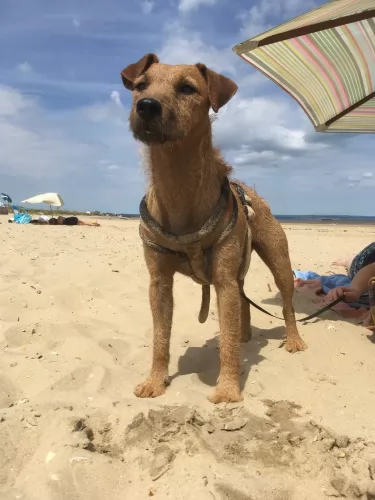 Fell terriers, known by other names such as Lakeland-, Patterdale-, Red Fell or Black Fell Terrier are small working terriers, hailing from the fell or hilly country of northern England.
Fell terriers, known by other names such as Lakeland-, Patterdale-, Red Fell or Black Fell Terrier are small working terriers, hailing from the fell or hilly country of northern England.
Several breeds have been developed from the Fell terrier, of which the Patterdale Terrier, Lakeland are some as well as other locally developed breeds. All these particular breeds are sometimes referred to as the Fell Terrier, and in fact the National Terriers Club LLC has published a Fell Terrier standard.
It is also believed that the long legged Fell Terriers may have descended from an old type of terrier referred to as the rough-coated Black and Tan. The Black and Tan Terrier is now extinct but was drawn into The Kennel Club as the Welsh Terrier.
 The Bull Terrier is a strongly built, muscular dog with a distinctive egg-shaped head. The height of this dog is roughly 53 – 61cm and he weighs in at about 24 – 29kg. He has a short, dense coat which comes in different colors such as white, red, fawn and white or brindle.
The Bull Terrier is a strongly built, muscular dog with a distinctive egg-shaped head. The height of this dog is roughly 53 – 61cm and he weighs in at about 24 – 29kg. He has a short, dense coat which comes in different colors such as white, red, fawn and white or brindle.
The ears are medium sized and erect and the eyes are pig-like, small and dark. The medium length tail is carried slightly upwards.
The Bull Terrier is a determined, strong-willed, stubborn dog and he will require firm handling and training. With socialization and training, he becomes a friendly, loving dog who is good around children.
He tends to be possessive with his human family and their territory, making him aggressive with other pets. Bull Terriers actually have even temperaments and they are good, social dogs with people. He is courageous, brave, full of spirit and character.
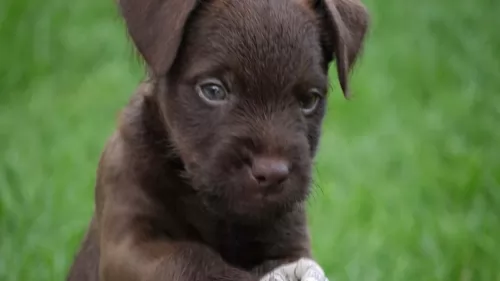 Small and feisty, the Fell Terrier is a working dog used for hunting purposes. He stands at roughly 31cm to 38cm in height and ways between 6 to 9kg.
Small and feisty, the Fell Terrier is a working dog used for hunting purposes. He stands at roughly 31cm to 38cm in height and ways between 6 to 9kg.
The dogs were sought after for their hunting skills as being the small dog they were, and with their narrow chests, they were able to move around in small, narrow underground tunnels.
The Fell has long legs, and his coat is shortish but with a rough texture to it. The coat is found in different colors such as white, black and tan, chocolate, red, black and bronze. The ears are medium length and floppy while the tail of the dog is traditionally docked, but these days the tail is often left long, and then he becomes less distinctive.
Used to having hunted in packs, the Fell Terrier has always been used to getting along well with other dogs. He makes a fantastic family pet and will get on well with children who have been been taught to respect animals. He is an independent, strong-willed dog and will certainly need socialization and training to turn him into an obedient dog.
He is energetic, fearless, strong-willed, determined and always ready for a game or some form of action.
 The way people bring their dogs up has a lot to do with the way they turn out. The Bull Terrier has often been thought to be a dangerous dog, but this is because of a bad upbringing.
The way people bring their dogs up has a lot to do with the way they turn out. The Bull Terrier has often been thought to be a dangerous dog, but this is because of a bad upbringing.
A dog like the Bull Terrier who has received firm, fair and loving training is an absolute pleasure to have as a pet. Yes, he is a strong willed, stubborn and intelligent dog and he has the make-up to turn out to be a handful. It is perhaps why he isn't the best choice for first-time dog owners who aren’t familiar with the breed and who don’t raise him the right way.
If you choose a Bull Terrier, bring him up correctly, have him trained and socialized and never neglect him and he is guaranteed to become a wonderful, loving family member.
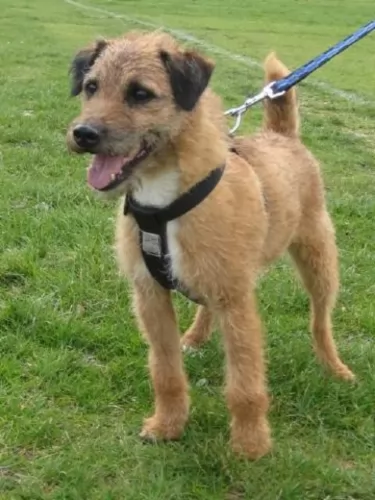 The Fell Terrier still has dreams of the hunt in him and with his strong prey instincts, he isn’t really suited to city living, but will fit ideally into life in the country.
The Fell Terrier still has dreams of the hunt in him and with his strong prey instincts, he isn’t really suited to city living, but will fit ideally into life in the country.
He is a high spirited, working dog with an endless amount of energy. He bonds closely with his human family, and for all his robust, larger-than-life attitude and boldness, when he is with his human family he can be gentle, calm and loving, just thriving on the love he receives.
Your Fell Terrier is just waiting to be your best friend and a never ending source of unconditional love.
 Your Bull Terrier is a robust breed, but there are some health issues that you will want to be aware of. For instance, the white Bull Terrier is more prone to deafness than the Brindle or tri-colored Bull Terriers. With good food and lots of love and care, he can reach 14 years of age. However there are one or two ailments what you want to be aware of.
Your Bull Terrier is a robust breed, but there are some health issues that you will want to be aware of. For instance, the white Bull Terrier is more prone to deafness than the Brindle or tri-colored Bull Terriers. With good food and lots of love and care, he can reach 14 years of age. However there are one or two ailments what you want to be aware of.
This is a common orthopedic condition with dogs, affecting both knees and resulting in loss of function and discomfort. Patellar luxation can sometimes come from a traumatic injury to the knee. However, with non-traumatic patellar luxation, the femoral groove for the knee cap is shallow or absent.
Not every variety of skin cancer in dogs is caused by sun exposure, but sun damage to the skin of the pure white Bull Terrier can be a factor. Dogs with white coats are more susceptible to sun damage. Speak to your vet about symptoms so that a physical examination will reveal the reason for sores on the skin.
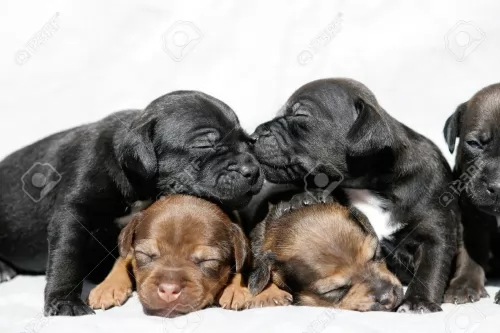 Caring for your Fell Terrier requires knowing what do do with him when he develops certain common dog illnesses. He is a robust dog and is not likely to get any serious illnesses, but still you want to know about some of the more common ones.
Caring for your Fell Terrier requires knowing what do do with him when he develops certain common dog illnesses. He is a robust dog and is not likely to get any serious illnesses, but still you want to know about some of the more common ones.
If you suspect an illness, get your pet to the vet who can provide you with a treatment plan for your dog.
Your Fell Terrier can easily fall prey to dental disease if you don't brush his teeth at least 2 or 3 times a week. Unfortunately bad teeth isn't just a case of losing a tooth or two, bad teeth can cause serious diseases such as kidney disease. Tarter build-up progresses to infection of the gums as well as roots of the teeth. So serious is dental disease that your dog can actually have his life shortened.
Your Fell Terrier is a small dog and obesity can easily creep up if you don't control your pet's diet. Obesity is a serious illness that can increase problems with the joints and digestion.
 The Bull Terrier is a stocky, robust breed and he will need plenty of exercise. He thrives on a good run, long walks and ball games. He is notoriously destructive, so you need to recognize this before you buy such a dog, because simply putting one in your back-yard and ignoring him will make him aggressive and destructive. This is a dog that needs lots of physical as well as mental exercise.
The Bull Terrier is a stocky, robust breed and he will need plenty of exercise. He thrives on a good run, long walks and ball games. He is notoriously destructive, so you need to recognize this before you buy such a dog, because simply putting one in your back-yard and ignoring him will make him aggressive and destructive. This is a dog that needs lots of physical as well as mental exercise.
With the short coat, Bull Terriers are easy to groom, and a brushing twice a week will keep the coat in tip top condition. He will also love the time you spend with him. Shedding of hair with the Bull Terrier is more frequent in the Spring and Fall.
Nail clipping and brushing of teeth are two other grooming routines for your dog. Remember that with teeth brushing, don’t be tempted to use human toothpaste as this can be toxic for your pet. Speak to your vet if in any doubt about how to brush your pet’s teeth.
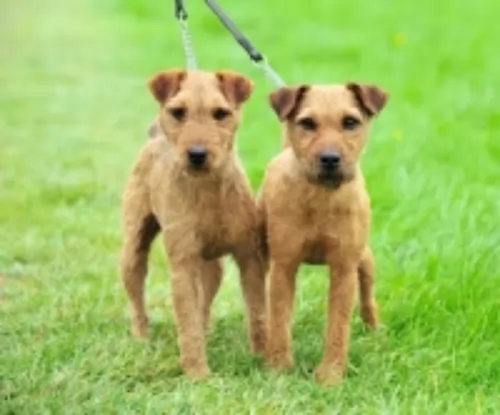 Your Fell Terrier is an active dog who won’t thrive if he is cooped up and ignored. He thrives on action and will need to be taken on walks with you and involved in all your games and sports, such as when you go jogging, swimming or cycling.
Your Fell Terrier is an active dog who won’t thrive if he is cooped up and ignored. He thrives on action and will need to be taken on walks with you and involved in all your games and sports, such as when you go jogging, swimming or cycling.
Feed your Fell Terrier the best quality commercially manufactured foods if you opt to feed your pet this way. Include cooked brown rice, vegetables and chicken into his kibble from time to time and always ensure there is cool, fresh drinking water available to him.
It depends on whether your Fell Terrier has a short, smooth coat, or the longer-haired coarse coat. He will certainly need brushing twice a week and sometimes, with the longer coats, he may require professional trimming or stripping.
Always check nails, in and outside the ears and remember to brush his teeth with canine toothpaste and toothbrush twice a week at least.